Many people occasionally experience problems with household pests. As we enjoy our vacation, many of these unwanted guests appear in our cottage unexpectedly. While most are merely a nuisance, some creatures can bite, sting, damage our properties, and even transmit harmful diseases. When uncontrolled, they can lead to an infestation, impacting the value of our property. Although many think that a can of bug or insect spray can eliminate the problem, it may not always be the best solution. Many cottage owners today are conscious of the adverse effects of harmful chemical pesticides and turn to safe and environment-friendly alternatives to eradicate pest problems.
The first step in finding a natural solution is to understand the cause of the problem. Identifying the pest allows you to understand their behaviour and prevent their reproduction and survival potential. Since all pests require food, water, and shelter to survive, removing access to these factors have a significant impact on pests. Natural preventive measures provide a lasting, more significant impact on the problem.
In this post, we will take a look at the six most common cottage pests and what you can do to protect your cottage from them:
Rodents (Order Rodentia) – Rodents, such as rats and mice, are warm-blooded mammals that are found in all parts of the world. These pests usually invade our space in search of food, water, and shelter, especially during the winter months.
Rodents can carry a variety of dangerous diseases and can cause significant structural damage over time. That is why it is crucial to identify the type of rodents that is causing the problem.
- Deer Mice: This bicoloured tail rodent (half brown, half white) usually build their nests in rural areas, particularly in tree hollows, log piles, and fence posts. Although deer mice rarely cause problems in residential areas, they are the most common carrier of Hantavirus, which is transmitted by inhaling dust particles contaminated with the feces, urine, or saliva of an infected rodent.
Prevention: Never leave pet food or birdseed outside overnight to avoid attracting deer mice.
- House Mice: House mice can squeeze their bodies through an opening as small as a dime. Although they have poor vision and are colour-blind, these rodents are incredibly keen. They thrive in dark, secluded areas. House mice can cause costly structural damage and could spark electrical fires by gnawing on wires. They contaminate food and water, carry tapeworms, and can spread salmonella, listeria, and other diseases.
Prevention: Keep your cabin clean and avoid storing boxes off the floor. Also, use rodent-proof containers to store pet foods. - Norway Rats: These nocturnal rodents can enter your cottage through cracks larger than a one-half inch or holes as small as the size of a quarter. Norway rats often invade cottages in the fall in search of food and shelter. They nest under concrete slabs and burrow in garbage piles. Like house mice, they can gnaw through plastics, metals, and wood structures. Norway rats have been long associated with salmonellosis, hepatitis, rat-bite fever, trichinosis, and other diseases. Unlike most fleas, rat fleas can be transmitted to humans.
Prevention: Keep your garden decluttered and avoid piling wood.
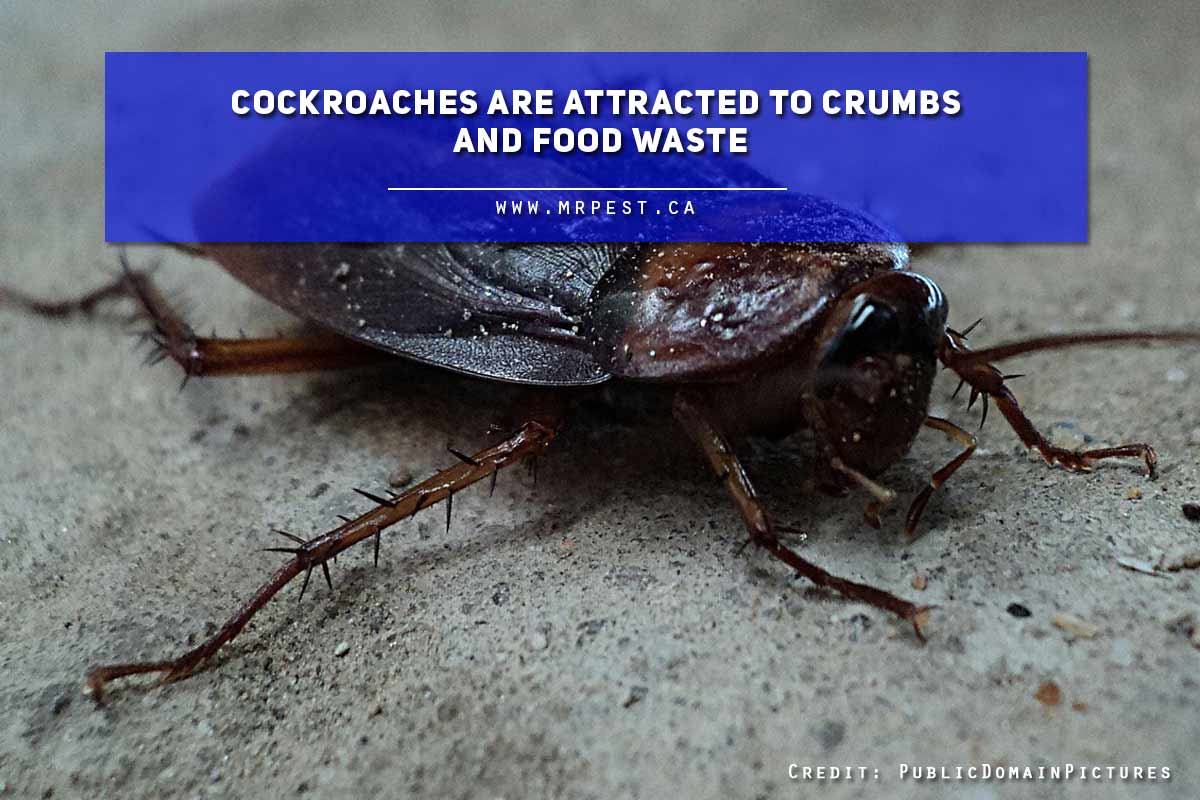
Cockroaches (Order Blattaria) – Cockroaches thrive in areas where food and moisture are readily available. They can gain entry through cracks or gaps in the wall or foundation, drains, or sewer pipes. These nocturnal creatures carry bacteria that cause food poisoning and indoor allergens.
Roaches can easily cause infestation because they reproduce at an enormous rate. An adult female cockroach can lay egg capsules containing up to 50 eggs, and produce thousands of offspring in a year.
Prevention: Seal up cracks and gaps using a tube of caulk and a caulking gun. Keep the cottage clean by wiping the counters, washing dirty dishes, and cleaning the stovetop clean, and sweeping the floors every night.
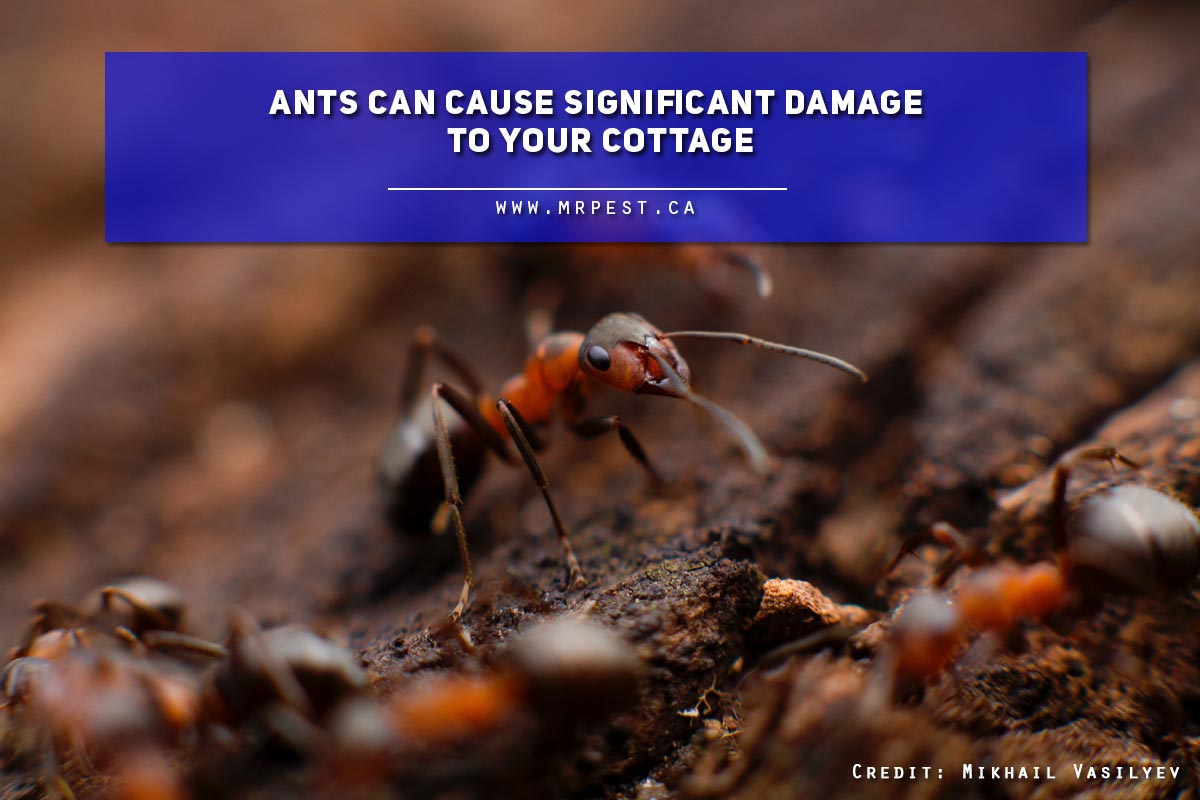
Ants (Family Formicidae) – Ant infestations are primarily due to poor sanitation. Food residue on countertops, dirty dishes in the sink, crumbs on the floor, and trash serve as food sources for meal-seeking ants. Once ants invade your cottage, they can establish colonies and build a nest in walls, under foundations, and lawns.
Ants can become a problem when they start to forage for food and water. When they locate food and water sources, they send a signal to other ants by leaving an invisible chemical trail that contains pheromones.
Prevention: Store leftovers and organic waste securely in sealed containers, clean kitchen thoroughly, and dispose of garbage daily.
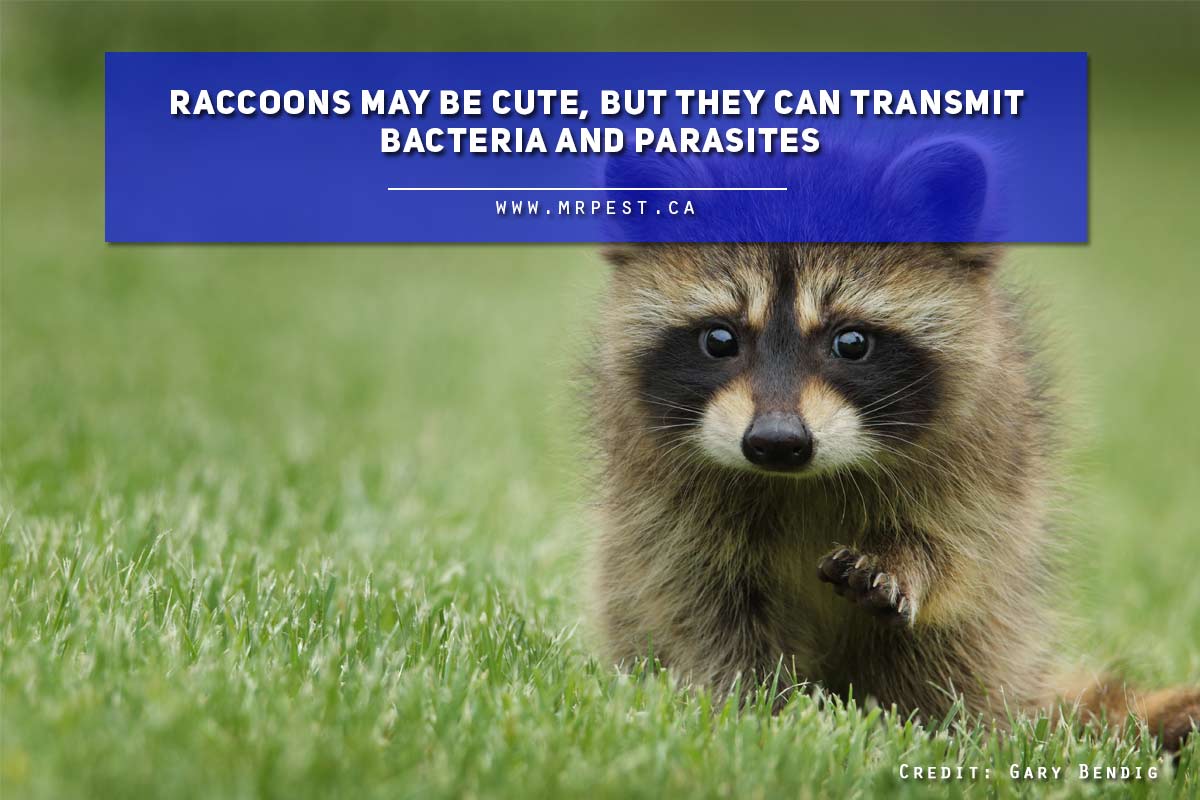
Raccoons (Procyon Lotor) – Although raccoons naturally live in wooded areas, these pests have adapted well to life in suburban areas and usually take shelter underneath decks and other parts in your backyard. These omnivorous creatures can cause significant damage to your landscape, plants, and cabin. They have sharp claws that can tear air ducts and insulation and create large holes in walls and underneath your cottage as they build their dens. Raccoons also harmful bacteria and parasites. When exposed to their urine and feces, it could put you at risk for serious health problems.
Prevention: Do not leave behind pet food and birdseed in your backyard overnight. If you see a raccoon in your property, contact a raccoon removal specialist to avoid injury or exposure to bacteria and parasites.
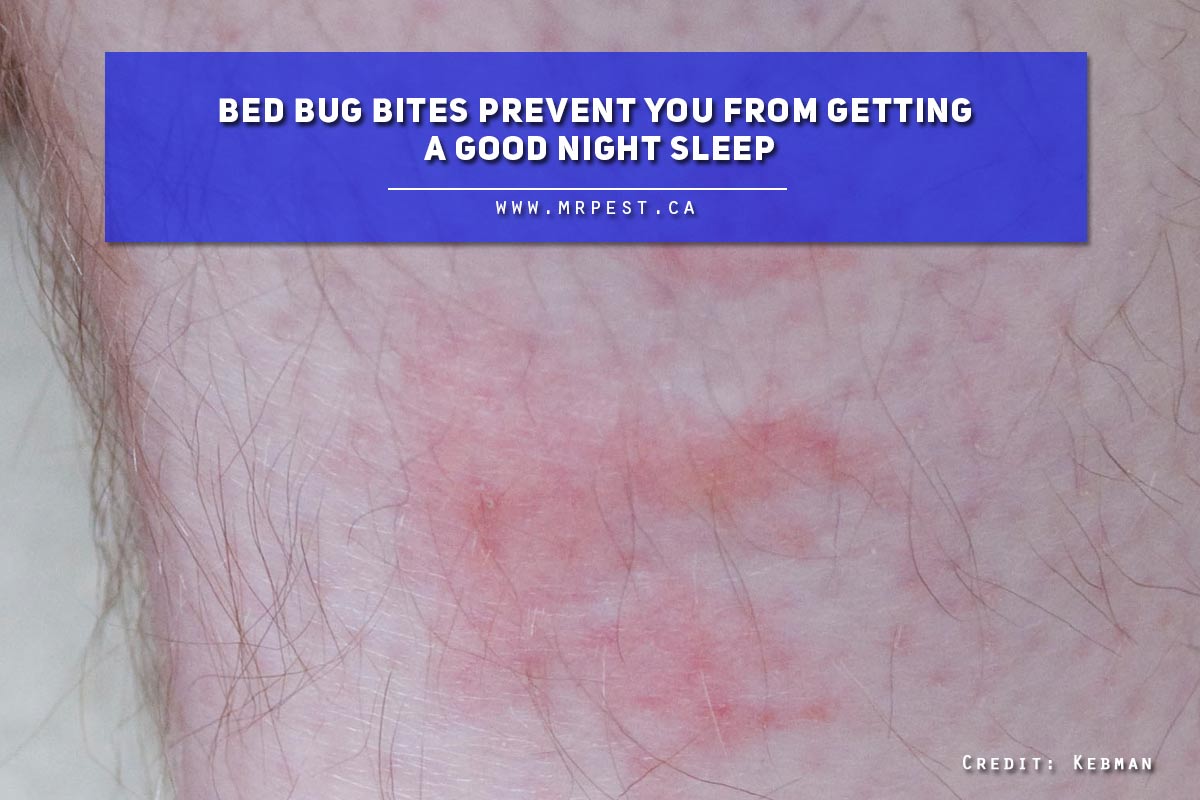
Bed Bugs (Genus Cimex) – These tiny yet troublesome household pests are sneaky and hard to find. They are nocturnal pests that live in bed mattresses, linens, and bedroom furnishings. They feed on blood, exposing its victim to various harmful diseases. Common symptoms of bed bug bites include itching, red welts, and swelling. Bed bug bites can also cause irritation or psychological concerns, which often results in a lack of sleep and stress.
Prevention: Wash linens thoroughly, and vacuum and caulk cracks. In case of bed bug infestation, contact a local pest control expert.
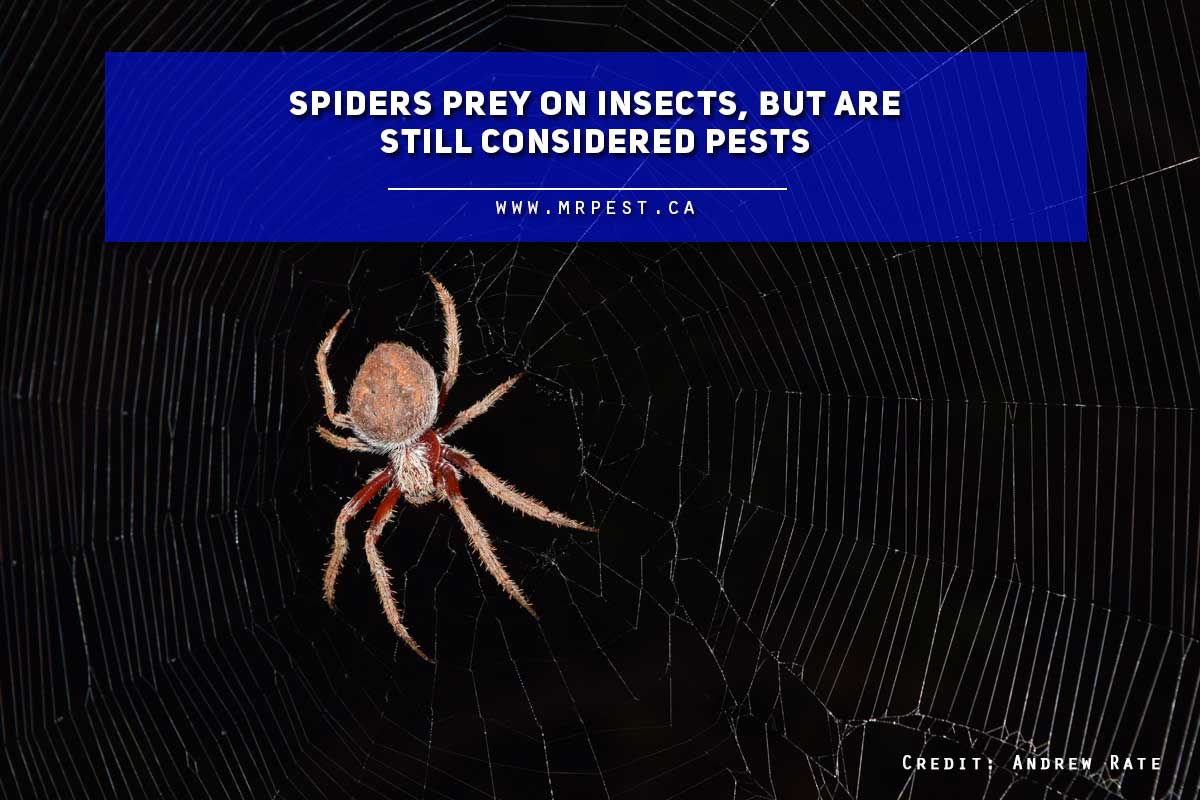
Spiders (Order Araneae) – Spiders can enter through loose screens and cracks under the door and windows to search for food and water supply, warmth, and mates. The presence of other insects and other prey can also attract spiders in your wooden home. Although most spiders pose little or no risk at all to humans, some species can deliver venomous bites, which can result in itchiness, muscle pain, nausea, vomiting, headache, and difficulty breathing.
Prevention: Store boxes and other belongings neatly on shelves. Make sure to clean up and throw away garbage properly. Also, seal cracks and repair screens to prevent entry.
Keep in mind that prevention is easier than trying to get rid of pest infestation. In addition to potential health risks, squaring with a large rat or other pests can give us a pure fright. Luckily, Mr. Pest Control is here to save the day and protect your cottage from these harmful pests.
Mr. Pest Control is a reliable pest control company in Barrie known for its proven track record in providing effective and long-term solutions for residential and commercial pest problems. Serving since 1991, our experience and skills in pest control allow us to get the job done right the first time! Call us at (705) 739-7378 for 24/7 pest removal services in Orillia, Barrie, Midland, Simcoe, and nearby areas.



